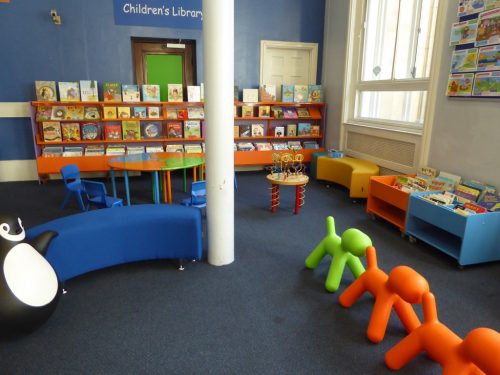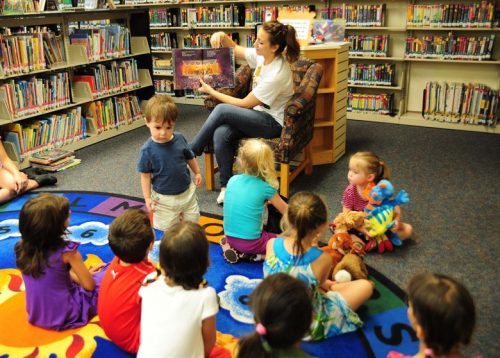
Source: upload.wikimedia.org
During the 2016 Austin Academic Tutoring Symposium, much has been said about improving education through tutorials as well as building or renovating libraries to cater to different types of children, including those with Autism Spectrum Disorder. A reputable speaker from the Autism Center of the University of Florida told the audience a story about a certain boy who has made an impact on their organization, leading them to launch a training program that aimed to educate library staff about autism, and providing them with specific instructions on how to manage and help them learn through books. “The quest to understand what causes autism may have just taken a step forward,” says Alison Escalante M.D. The program included an online training for librarians and other staff to learn how to communicate with autistic visitors by talking in short sentences and offering more specialized settings such as an exclusive book list for them.
According to the speaker, this poses a challenge for libraries around the world. Out of 68 kids in America, there is one who is diagnosed with autism. “Although autism spectrum disorder (ASD) is often thought of as a childhood disorder, there is an increasing number of older adults who are being diagnosed for the first time,” according to Katherine K.M. Stavropoulos Ph.D. An autistic child is mentally and physically disabled and has difficulty controlling his speech and his behavior. This growing presence of the disorder has encouraged some organizations and universities to provide additional services that would accommodate children who often cannot follow the expected usual behavior while in a library. “Given this varied presentation, researchers have acknowledged that a complete understanding of autism will require the inclusion of multiple scientific perspectives,” says Liz Pellicano PhD.

Source: jbcharleston.jb.mil
The Florida State University’s program is an interactive project composed of four sessions that will serve as a guide to library staffers for them to be aware of the signs and symptoms of autistic visitors, to utilize strategies that provide alternatives for them, and to assign areas for those who get overwhelmed. The primary goal is to help instill a safe academic space for autistic visitors.
This is beneficial for autistic as well as regular kids. It helps their parents and themselves feel more comfortable while they interact with each other. Improving academic libraries is an opportunity for kids with autism as well as those without autism.
